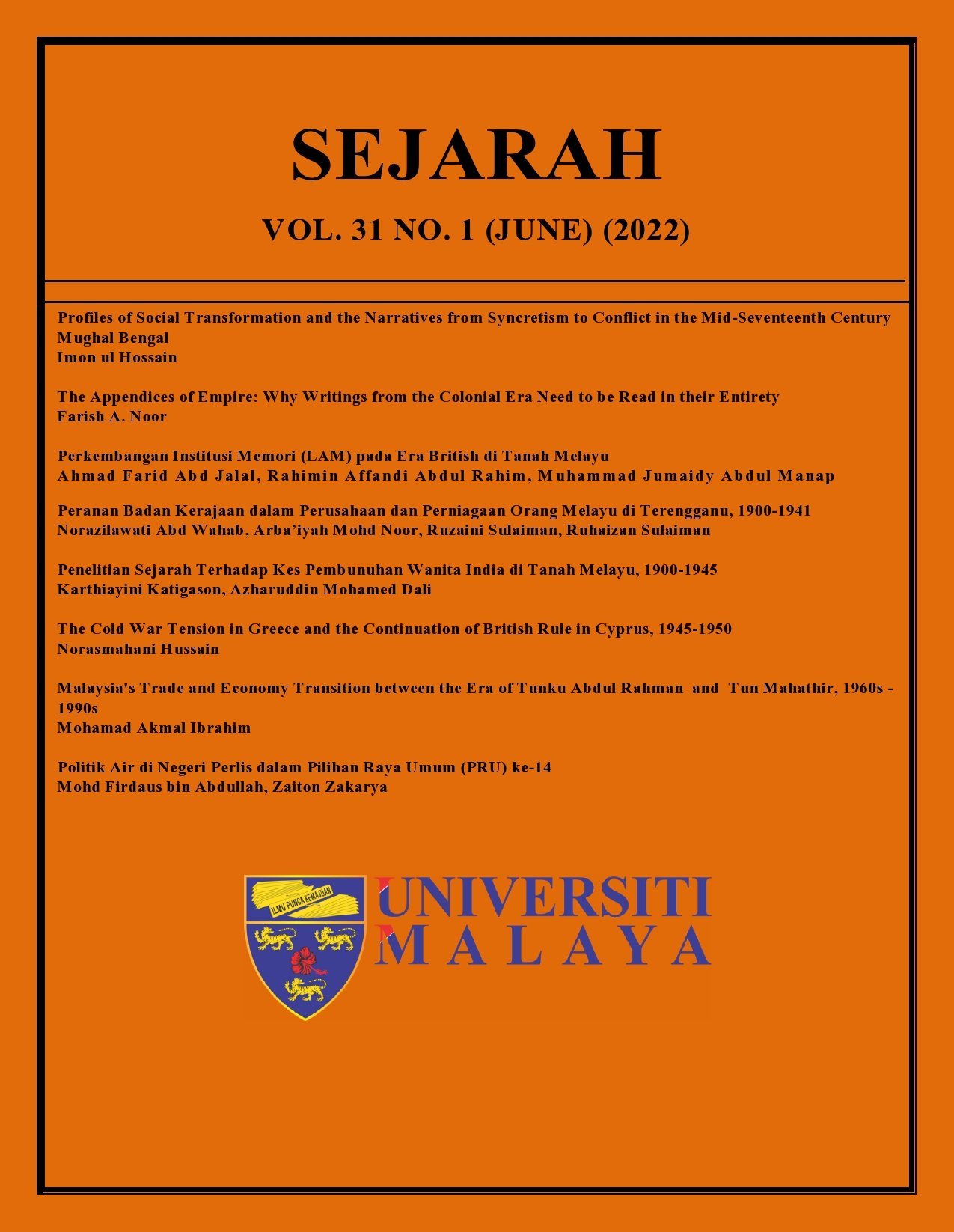Profiles of Social Transformation and the Narratives from Syncretism to Conflict in The Mid-Seventeenth Century Mughal Bengal
DOI:
https://doi.org/10.22452/sejarah.vol31no1.1Keywords:
Bengal, Mughal, Medieval, Syncretism, ConflictAbstract
The mid-seventeenth-century history of Mughal Bengal has hardly been visited in terms of the social aspects and counter identities of conflict. So many authors have widely worked in the field of medieval Bengal, but there has been no detailed study conducted on the aspect of social transformation and the phenomenon of syncretism to conflict in the last decade of Mughal Bengal because the primary sources of this period have not been carefully studied in terms of appropriate relevancy. That’s why the major evolution of a changing social perception remain unnoticed until the close of Mughal rule. The objective of this paper is to analysis the transformation that occurred in the diverse social profiles of mid-seventeenth-century Bengal, simultaneously, a discourse to observe the conflict of this century against the long-established historical model known as ‘syncretism’ in Medieval Indian history. This work is using qualitative method-based on contemporary accounts of foreign travellers, Persian, and Bengali sources and a few secondary sources in which the new findings are-firstly, the emerging characteristics of the mid-seventeenth century Bengal’s society like-the co-existence of Hindus-Muslims along with the newcomer Christians, the prevalence of folk beliefs and rituals, composite profiles in Pirism, and Distinctive caste identities; secondly, the modes of discrimination and violence.
Received: 3 June 2022
Reviewed: 4 June 2022
Accepted: 16 June 2022






